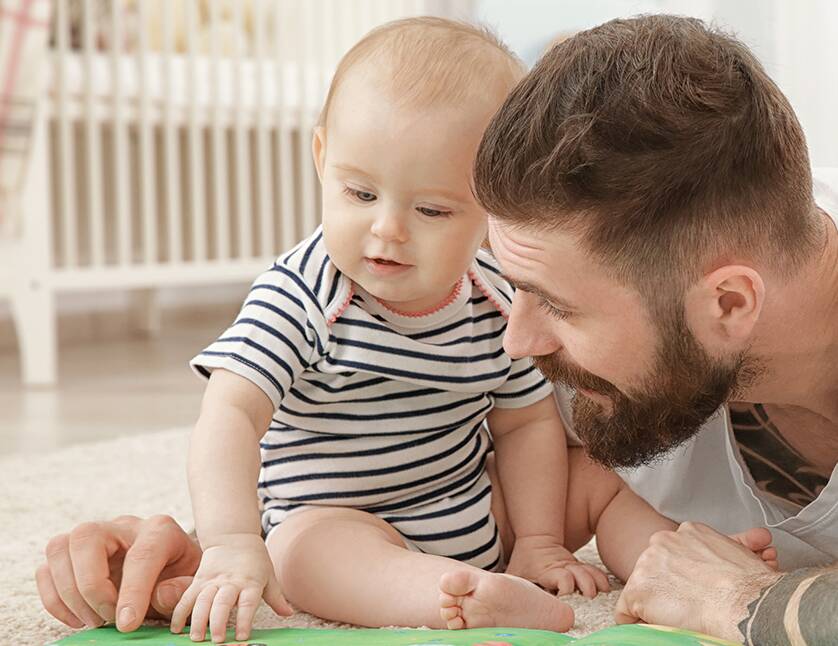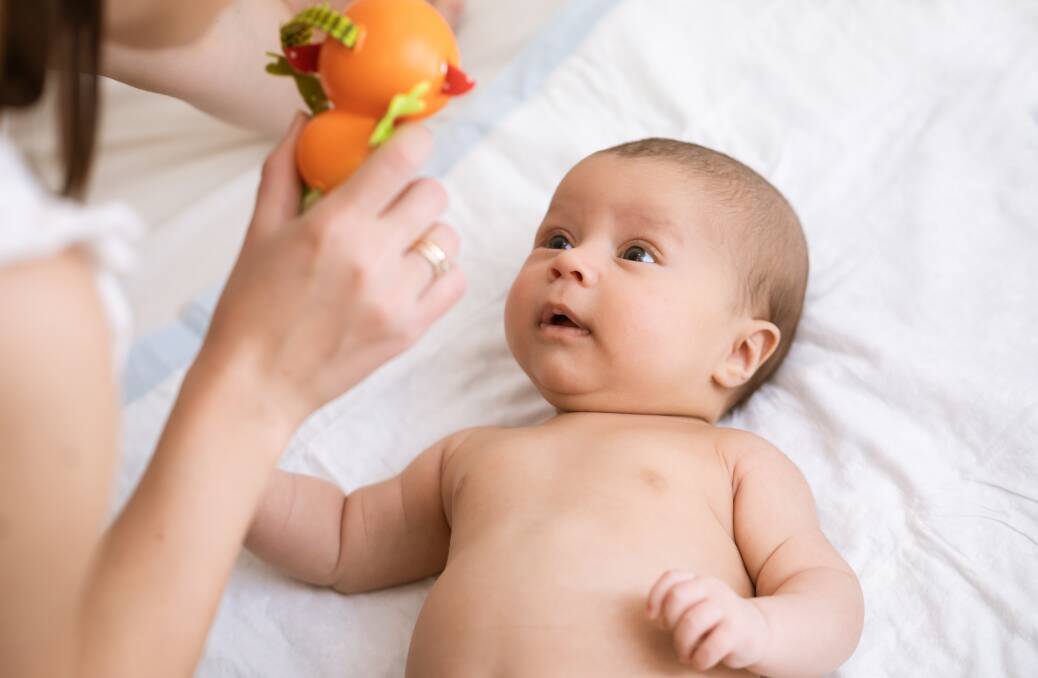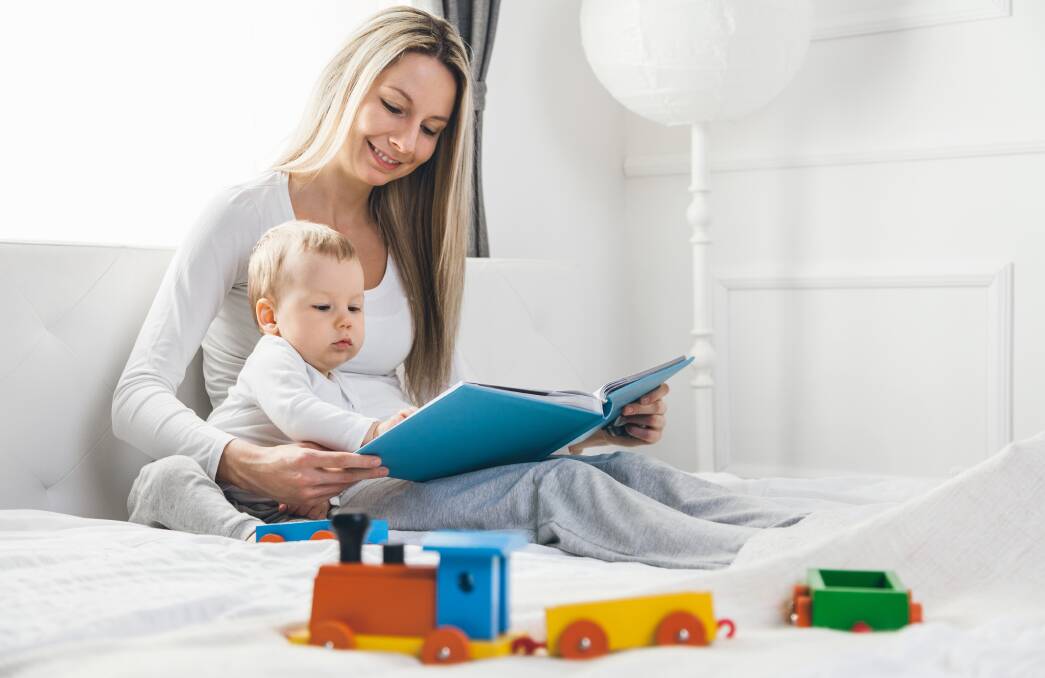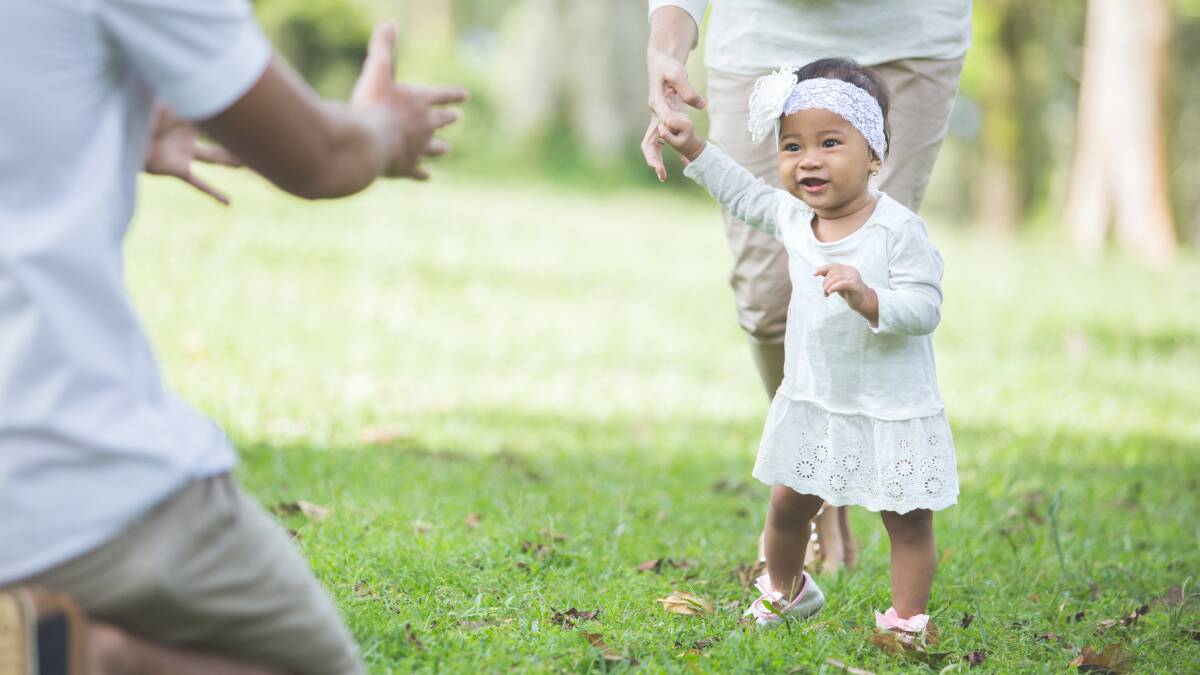Clever baby: How to stimulate your child's learning potential and lay foundations for their development future

This story is sponsored by Baby Bunting.
Babies are born to learn - it's how they grow to be able to navigate their environment and reach maturity.
From their earliest days, your bundle will start soaking up everything they see and experience. During your baby's first 12 months, a high level of stimulation in an informal environment will lay solid groundwork for their communication, expression and education in the years to come.
So, what can you do to ensure you're providing the best environment for your little one? Which activities can help to feed that curious little brain and set your child up for their best future as they develop and hit those important milestones?
Encourage strong and varied relationships
Your relationship with your baby is the foundation for their learning. If babies feel secure, healthy and loved, they will feel free to explore and engage with their environment. They will also feel safe interacting with family and friends, which in turn will increase their exposure to different tones of voice, body language, faces and vocabulary.
Provide stimulation
Stimulation creates special connections in your baby's brain called neural pathways, which allow them to build their understanding of the world and better control their interactions with it. You can help stimulate your baby's brain development by:
- talking, cooing and singing to them
- reading books to them with bright pictures
- spending time outdoors in the backyard
- providing different textures like sand, grass and water
- playing with toys that have diverse parts, movements, shapes and sounds.

Have conversations
Talk to your infant in the same way you would with anyone else. Ask questions and pause for their response to help them learn when it's their turn to reply. They will eventually respond through facial expressions, body language, sign language and sounds.
Introduce numeracy, literacy, writing and drawing
With your help, your infant can lay the groundwork for these important life skills.
- Numeracy. You don't need whiz-bang toys to help your baby start to understand numbers. Use household items, pieces of fruit, toys, anything at hand to help them make the connection between objects and numbers of objects.
- Literacy. Although your baby is likely too young to develop a deep understanding of literacy, guiding their speech development is an excellent first step. Read picture and word books and play with the first letters of the words, repeating the sounds and emphasising how your lips move.
- Writing and drawing. Older babies will have some of the fine motor skills required to paint or draw. Their strokes and scribblings are essential in learning to write within the next few years, and important for their expression too. Help your baby make the connection between the objects they see and the ones they draw by making your own sketches with them.

Remember, every child learns and develops at a different pace but there are some key milestones you will notice as you watch and guide them through these first 12 months.
Longer sleeps
Babies usually start their lives sleeping in a consistent cycle of short, regular sleeps through the day and night. By six months, they will be starting to sleep for longer periods throughout the night with a couple of shorter naps during the day. By now, this could even include uninterrupted sleep for about ten hours a night.
Crawling
By six months, babies will have developed their neck and upper body strength and will eventually be learning to sit unsupported before progressing to crawling after eight months. Crawling opens up a whole new world for your baby, letting them explore new motion and motor skills. When your baby starts to pull themselves up to a supported standing position, walking won't be far away. Start seriously baby proofing your home now!
Introducing solids and teething
At around six months, the arrival of your baby's first teeth is generally when babies begin showing signs that they are ready for some solid food. These signs may include the ability to sit while being supported, showing interest in your food, and maybe reaching out to try some. You can introduce solids while breast or formula feeding starting with simple mushy or pureed foods. By 12 months, your baby will have many more teeth and can eat much of the foods you eat when mushed up or cut into bite-sized portions. Eventually, many are able to feed themselves small portions and drink from cups unassisted.
Walking
By their first birthday, babies are usually able to walk while supported and may even be taking some steps on their own. The first few steps might result in your baby falling quickly onto their bottom but, in just a few months, they will have said goodbye to crawling.

Talking
What will your baby's first words be? By 12 months, they may have spoken simple words like "mama", "dada" and "no", with their vocabulary increasing in a cascade in the following months. Your baby may be able to understand complex speech and instructions before they start talking, with some already developing cheekiness, such as feigning ignorance.
Playtime
Playtime is fun, but offers so much more for your baby's development and understanding of the world. By interacting with their environment, they learn fine motor skills, like grasping, manipulating objects and feeding themselves, and gross motor skills, like sitting, crawling, and walking.
Your baby's first 12 months are all about these milestones, and parents and caregivers are often amazed at how far these tiny people come in such a short time.
Most of these milestones will be followed by consolidation in the years of development that follow, but it can all be traced back to this very important time of initial learning and development.
This story is sponsored by Baby Bunting.


